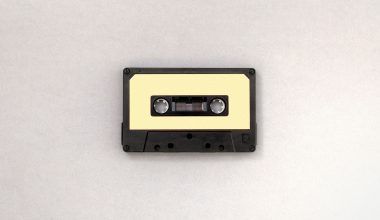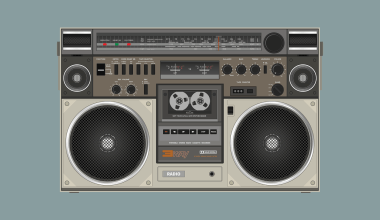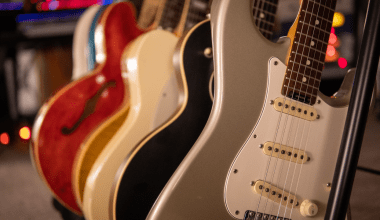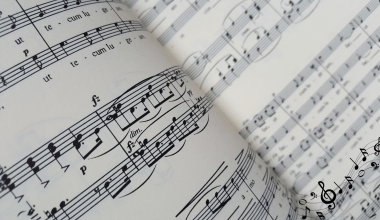If you’re someone who loves music, you’ve probably come across terms like EP, LP, singles, and albums. But what exactly do these terms mean? Specifically, what is an EP for music? The term “EP” can be a little confusing if you’re not familiar with how music releases work. Don’t worry—we’re here to break it down for you in a simple and easy-to-understand way. By the end of this blog, you’ll know exactly what an EP is, why artists release them, and how it fits into the music industry.
What Does EP Stand For?
To start with the basics, EP stands for “Extended Play.” It’s a type of music release that is shorter than a full-length album (LP) but longer than a single. Usually, an EP contains about 3 to 6 tracks and runs for about 15-30 minutes.
This means an EP gives listeners more content than a single but doesn’t require the time or resources to produce a full-length album. It’s a perfect middle ground for both artists and fans.
For example:
- A single typically includes 1 or 2 songs.
- An EP usually has 3 to 6 songs.
- An album (LP) often contains 8 or more songs and can last 30 minutes or longer.
Now that you know what EP stands for, let’s explore why artists choose to release EPs instead of albums or singles.
Why Do Artists Release EPs?
There are several reasons why musicians decide to release EPs. Let’s take a closer look at some of the most common ones.
1. Budget-Friendly for Artists
Producing a full album can be expensive and time-consuming. Not all artists, especially new ones, have the resources to create a complete album. An EP allows artists to release multiple tracks without spending too much money or time.
2. Test the Waters
An EP is a great way for artists to experiment with their sound. They can release a smaller collection of songs to see how fans react before committing to a full album.
3. Keep Fans Engaged
Fans always want new music, but creating an album takes time. Releasing an EP allows artists to share fresh songs with their listeners while they work on a bigger project.
4. Promotion and Growth
For new or independent musicians, an EP serves as a stepping stone. It gives them something tangible to promote and share with fans, music labels, and streaming platforms. It’s a smart way to grow their audience without overwhelming them with too many songs at once.
5. Flexibility in Music Releases
EPs offer flexibility. Artists can use them to explore different genres, themes, or sounds without the pressure of delivering a cohesive full-length album.
In short, EPs are a win-win for both artists and fans. They’re affordable, engaging, and a fantastic way for musicians to showcase their creativity.
What Is the Difference Between an EP and an LP?
Now that we’ve covered what an EP is, let’s talk about how it differs from an LP.
- EP (Extended Play):
- Contains 3 to 6 songs.
- Runs between 15 to 30 minutes.
- Ideal for smaller, experimental, or budget-friendly releases.
- LP (Long Play):
- Contains 8 or more songs.
- Usually runs over 30 minutes.
- Considered a full album with a cohesive theme or sound.
While EPs are shorter and more flexible, LPs offer a more in-depth look at an artist’s work. Both have their place in the music industry, and artists often use both formats throughout their careers.
Examples of Famous EPs in Music
Many well-known artists have released EPs at some point in their careers. Here are a few famous examples:
- The Beatles released several EPs during their early days, like “Twist and Shout.”
- Billie Eilish dropped her EP “Don’t Smile at Me” in 2017, which gained her significant recognition.
- Post Malone’s first major release was the EP “August 26th,” which helped him break into the mainstream.
These examples show that EPs can be incredibly powerful. They’re often a stepping stone to success and a way to deliver iconic tracks to the world.
How Long Should an EP Be?
The length of an EP can vary, but it generally includes 3 to 6 tracks and runs between 15 to 30 minutes. However, there’s no strict rule. Some artists release slightly longer EPs, while others stick to shorter ones.
If you’re an artist thinking of releasing an EP, focus on quality over quantity. A strong collection of 4 or 5 songs can make a much bigger impact than a longer release with filler tracks.
Why Are EPs Popular Today?
EPs have become even more popular in the digital age. Here’s why:
- Streaming-Friendly People now listen to music on streaming platforms like Spotify and Apple Music. EPs are short, digestible, and perfect for modern attention spans.
- Independent Artists With more musicians creating music independently, EPs allow them to release songs without the pressure or cost of a full album.
- Fast-Paced Music Industry The music industry moves quickly. EPs let artists stay relevant and share new music more often.
For fans, EPs mean getting fresh, high-quality music regularly. It’s a win-win situation.
How to Release Your Own EP
If you’re an aspiring musician, you might be wondering how to release an EP of your own. Here are the basic steps:
- Plan Your EP Decide on the theme, number of songs, and overall sound.
- Record the Songs Work with a producer or record the tracks yourself if you have the equipment.
- Mix and Master the Music Make sure your songs sound polished and professional.
- Choose a Release Strategy Decide whether you want to release the EP on streaming platforms, Bandcamp, or as a physical copy.
- Promote Your EP Use social media, live performances, and collaborations to spread the word.
Releasing an EP can be an exciting and rewarding experience. It allows you to share your art with the world and grow as a musician.
Conclusion
So, what is an EP for music? Simply put, an EP is an extended play record that falls between a single and a full album. It’s a versatile format that allows artists to share their music without the time and cost of creating a full-length LP.
EPs are perfect for testing new sounds, engaging fans, and growing as a musician. They’re also incredibly popular in today’s fast-paced, streaming-focused music world.
For further reading, explore these related articles:
- The Power of Names with Music: How Your Name Shapes the Melody of Your Life
- Unique and Creative Names for a Music Magazine
For additional resources on music marketing and distribution, visit DMT Records Private Limited.





